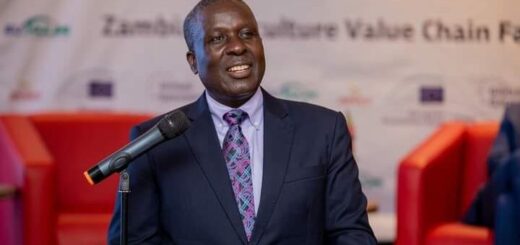Politicians Have Dwarfed Zambia
Zambia, despite maintaining relative political stability and avoiding major civil conflict, has been crippled by a form of negative peace—a deceptive calm that conceals deep divisions and widespread suffering.
The country’s underdevelopment is not a result of external threats or forces but a product of political decisions that prioritize personal power over national prosperity.
This pattern is evident in every political era since independence, where leaders consistently used the constitution, legal apparatus, and their influence to entrench their authority while suppressing opposition and innovation.
The post-independence leadership of the United National Independence Party (UNIP) exemplifies this trend. Leaders such as Simon Kapwepwe and Harry Nkumbula, who had vibrant and promising careers, were sidelined or eliminated because their vision conflicted with that of Kenneth Kaunda, the nation’s first president.
Kaunda’s 1973 constitutional reforms, which created a one-party state, were not merely reactions to regional instability—they were acts of political consolidation, ensuring that any dissent or alternative leadership was quashed.
This legacy of self-preservation at the expense of the nation’s democratic health has persisted. The Movement for Multiparty Democracy (MMD), which unseated UNIP, was supposed to mark a new beginning. However, it instead became consumed with erasing Kaunda’s legacy, fearing his return to power.
Prominent leaders like Ronald Penza and Paul Tembo, who dared to harbor political ambitions, met mysterious and untimely deaths—symbols of how deeply entrenched political rivalry and suppression have become in Zambian politics.
The manipulation of the constitution has been a recurring tool for maintaining power. Kaunda’s return to multiparty politics in the 1990s was an act of reluctance, not progressiveness, driven by mass pressure rather than genuine reform.
Chiluba, once hailed as a democrat, employed similar tactics, amending the constitution to bar Kaunda from running in the 1996 elections. This act was not about advancing Zambia’s democracy, but ensuring Chiluba’s continued dominance.
The manipulation of the constitution became a norm, with successive leaders—from Levy Mwanawasa to Edgar Lungu—cherry-picking amendments to serve their political ends.
Mwanawasa’s tenure, often lauded for its fight against corruption, was also marked by accusations of nepotism and constitutional engineering that served his interests. His creation of a ‘family tree’ within government positions and his strategy of appointing opposition leaders to ministerial positions were not about national unity but about consolidating power by weakening opposition forces.
Similarly, Lungu’s administration was notorious for cherry-picking constitutional amendments to solidify his position while turning a blind eye to the core of human rights issues, including neglecting the Bill of Rights.
His indifference to the violence perpetrated by his political cadres against citizens and opposition members further illustrates how Zambian politicians have used their authority to dwarf the potential of the nation.
Zambian politics is steeped in a destructive cycle of retribution. Each leader, upon coming to power, seeks to avenge the wrongs they endured, perpetuating a system where progress is sacrificed for personal vendettas.
Chiluba’s downfall, for example, came at the hands of Mwanawasa, whom he had handpicked as his successor, only to find himself stripped of immunity and facing prosecution.
Mwanawasa’s own legacy was partly tainted by his failure to shield his predecessor from public humiliation, opting instead to allow the political machinations of retribution to continue.
This cycle remains unbroken. Even under President Hakainde Hichilema, who came to power on a platform of anti-corruption, there are concerns that his fight against corruption might evolve into the same retributive justice that his predecessors wielded.
As long as leaders use political power to settle personal scores, the nation remains locked in a vicious cycle that distracts from meaningful development.
Zambia’s political leadership has dwarfed the nation. The opportunities for reform—particularly constitutional reform—have been repeatedly squandered in favor of short-term political gains.
The constitution has been a tool of manipulation, altered at the whims of the ruling elite rather than a document that embodies the will and aspirations of the people.
This failure to establish a robust, people-driven constitution has left Zambia vulnerable to the cyclical nature of its political struggles, where each leader undoes the work of their predecessor rather than building on it.
President Hichilema now holds the baton, and the question remains: will he finally break this cycle? The burden of history rests on his shoulders. He can either follow the well-trodden path of manipulation and self-interest or seize the opportunity to truly empower the Zambian people by championing reforms that prioritize national development over personal legacy.
Zambia needs a leadership that is willing to forgo personal glory for the greater good. The political elite must understand that their time in power is temporary, but the decisions they make will shape the future of the nation for generations. They must resist the temptation to use power as a tool of self-preservation and begin to see it as a responsibility to serve the people and uplift the nation.
As Zambia continues to reflect on its past and present, it must confront the uncomfortable truth: its political leadership has been a major obstacle to progress. It is time for a new political culture, one that prioritizes the common good, fosters true reconciliation, and builds a foundation for sustainable development.
The nation’s prayers on October 18 should not only seek divine intervention but also provoke an introspection among its leaders—because Zambia’s future lies in the choices they make today.








